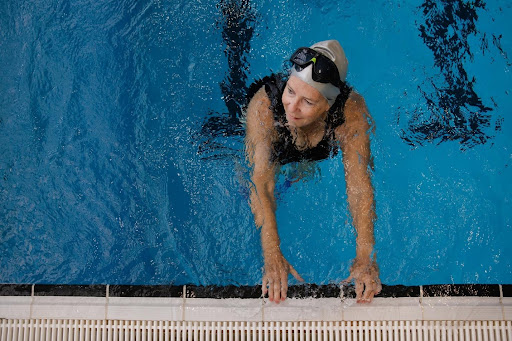Table of Contents
Swimming is widely considered a healthy activity, but pool maintenance involves chemicals that can pose respiratory risks, especially in indoor settings or poorly ventilated environments. The substances used to keep pools clean may impact lung health and function in swimmers, pool staff, and even bystanders. Recognizing these risks can help reduce exposure and protect respiratory health.
Chlorine And Chemical Byproducts
Chlorine is one of the most common chemicals used to disinfect pool water. While effective at killing bacteria and viruses, chlorine reacts with organic matter such as sweat, skin cells, and urine to form disinfection byproducts called chloramines. These chloramines are volatile compounds that can evaporate from the water’s surface and irritate the eyes, throat, and lungs when inhaled.
Indoor pools are especially susceptible to chloramine buildup. Without proper air circulation, these compounds can accumulate and create a persistent chemical odor, often mistaken for chlorine itself. Swimmers may experience coughing, wheezing, or shortness of breath during or after exposure. People with asthma or other chronic lung conditions are particularly vulnerable.
Long-Term Effects And At-Risk Populations
Frequent exposure to pool chemicals has been associated with changes in lung function, especially in competitive swimmers and pool workers. Studies suggest that regular contact with chlorinated water and air may increase the risk of asthma-like symptoms or aggravate existing respiratory conditions. Children, due to their developing lungs and higher respiratory rates, are more sensitive to chemical exposure and may show symptoms sooner.
Proper pool management is essential for reducing risks. This includes maintaining optimal chemical levels, ensuring proper filtration, and using PVC gate valves and other components that help regulate water flow and system maintenance efficiently. Keeping organic matter out of the pool through pre-swim showers and bathroom breaks also helps minimize chemical reactions.
Ventilation And Mitigation
Good ventilation is critical, especially in indoor pool environments. Air handling systems should remove contaminated air and introduce fresh air to dilute airborne irritants. Facility operators should regularly inspect and maintain these systems to ensure they function effectively.
Protecting lung health in pool settings involves a combination of chemical control, proper infrastructure, and awareness of individual risk factors. These measures help make aquatic environments safer for both recreational and competitive use. For more information, look over the accompanying resource.


